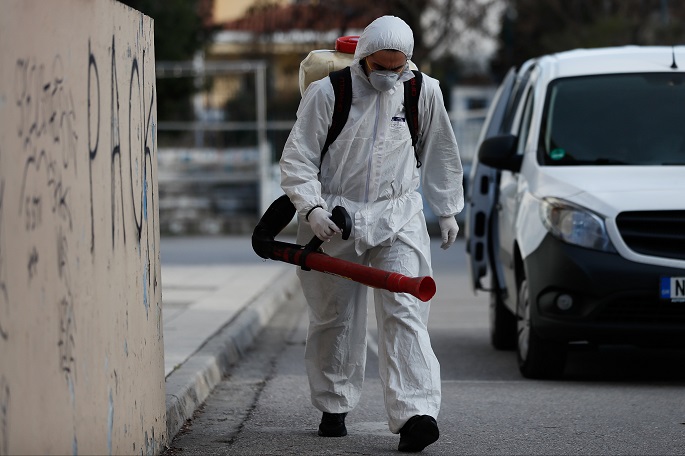Greece tightens border controls to tackle both migrant flows, coronavirus
Published : 28 Feb 2020, 03:26
Greece proceeds to the upgrade of controls at its borders on land and at sea as part of measures to address both the migrant flows and the novel coronavirus outbreak, Greek Prime Minister Kyriakos Mitsotakis said on Thursday, according to Greek national news agency AMNA.
With three confirmed COVID-19 cases reported in Greece within 24 hours -- a woman and her child in Thessaloniki city in the north and another woman in Athens, Greek authorities are implementing measures to avert the spread of the virus.
"For this purpose, I have already given instructions to the shipping minister and the chief of the Coast Guard to significantly increase the number of boats and patrols around the islands of the Eastern Aegean," said the prime minister, explaining that the border controls will be increased in accordance with international law.
The government has already cancelled carnival and Clean Monday events nationwide scheduled until Monday.
In coming days, Mitsotakis will visit the islands, which have received the bulk of refugees and migrants in recent years, according to an e-mailed press announcement issued from his office. The visit comes after a "constructive" meeting with local government representatives from the islands of Samos, Lesvos and Chios on Thursday.
Protestors clashed with police forces on Wednesday on Lesvos and Chios during rallies against the government's plan to construct new camps on the islands to decongest the overcrowded existing facilities. More than 60 people were slightly injured in the clashes.
On Thursday, local government officials welcomed the government's decision to strengthen border controls and accelerate asylum procedures and returns for those not eligible, according to the press release.
The two sides agreed that the existing problematic camps should be replaced by new ones and that measures to support locals should be implemented, the press statement added.
More than one million refugees and migrants have reached Greece since 2015, mainly coming from Turkish shores. Most continued their travel to central and northern European countries until the Balkan route via Greece's northern borders was sealed.
Despite a dramatic drop in numbers, tens of thousands of people continue risking their lives to reach Greece every year, according to official data.


